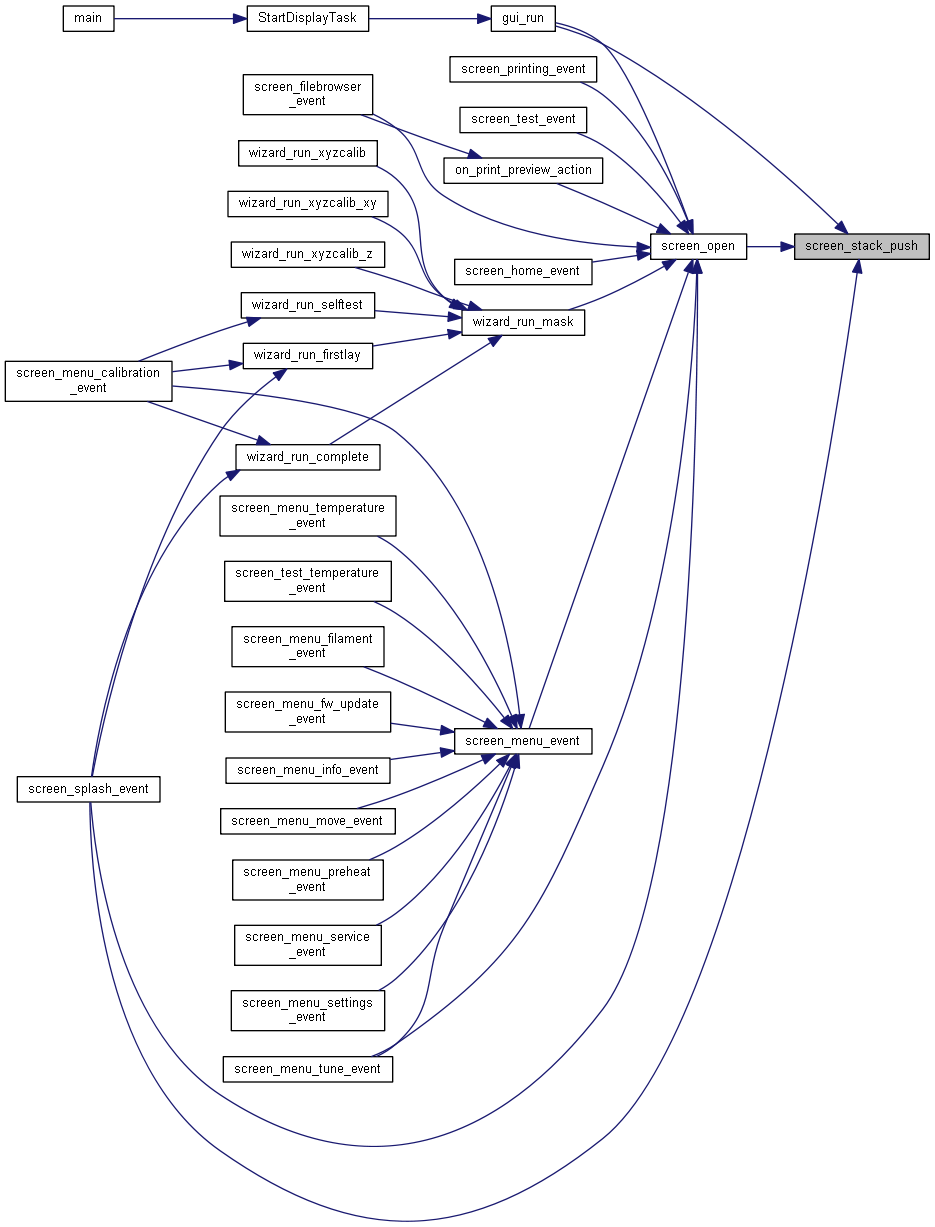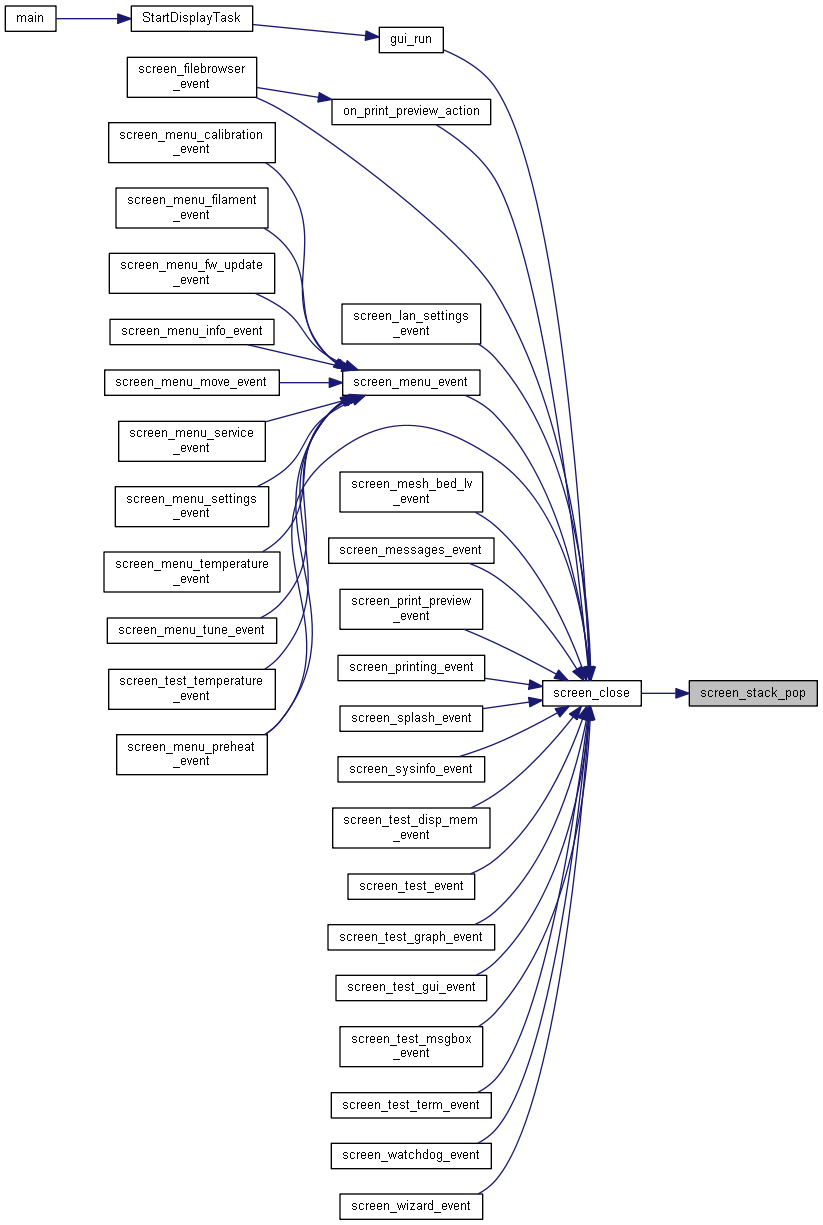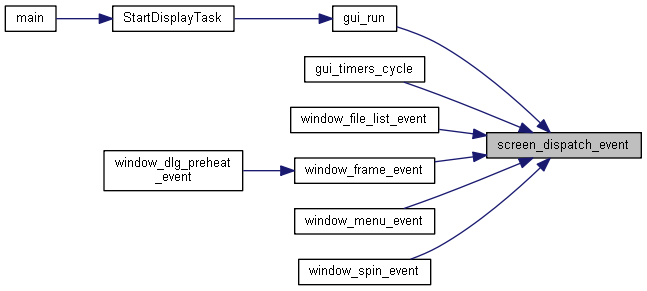#include <inttypes.h>
#include "window.h"
Go to the source code of this file.
◆ screen_t
◆ screen_init_t
◆ screen_done_t
◆ screen_draw_t
◆ screen_event_t
◆ screen_id()
| int16_t screen_id |
( |
void |
| ) |
|
◆ screen_register()
| int16_t screen_register |
( |
screen_t * |
pscreen | ) |
|
◆ screen_unregister()
| screen_t* screen_unregister |
( |
int16_t |
screen_id | ) |
|
◆ screen_stack_push()
| void screen_stack_push |
( |
int16_t |
screen_id | ) |
|
◆ screen_stack_pop()
| int16_t screen_stack_pop |
( |
void |
| ) |
|
◆ screen_open()
| void screen_open |
( |
int16_t |
screen_id | ) |
|
◆ screen_close()
◆ screen_draw()
◆ screen_dispatch_event()
110 if ((ret == 0) && window && window->
event)
◆ screen_get_curr()






